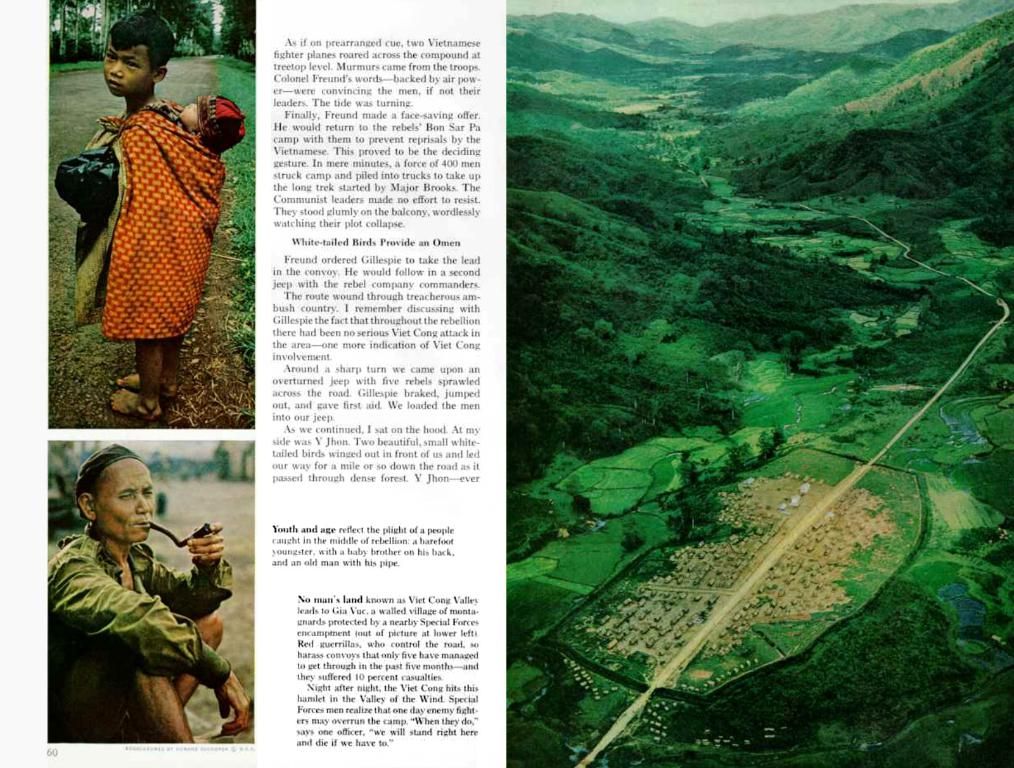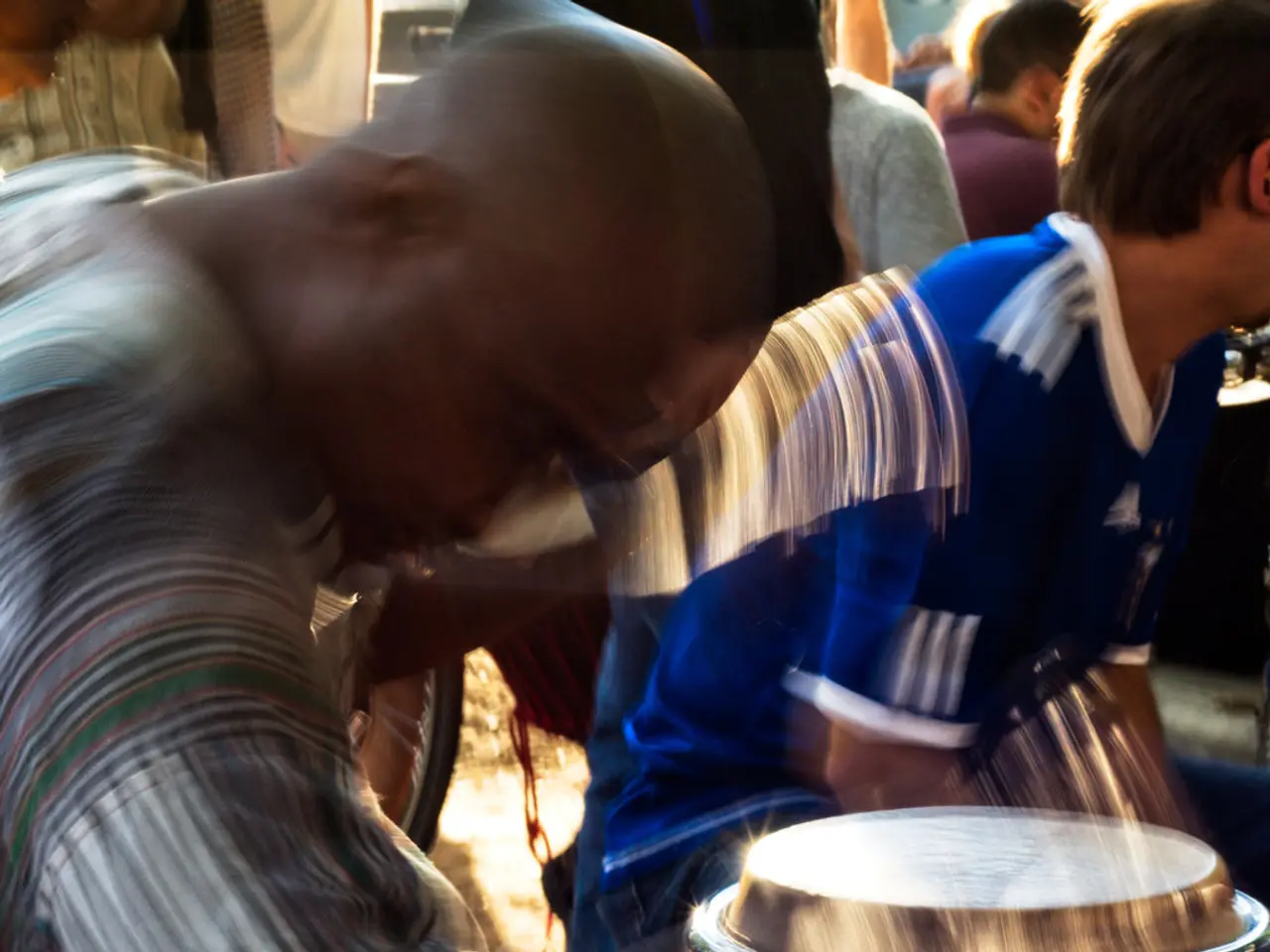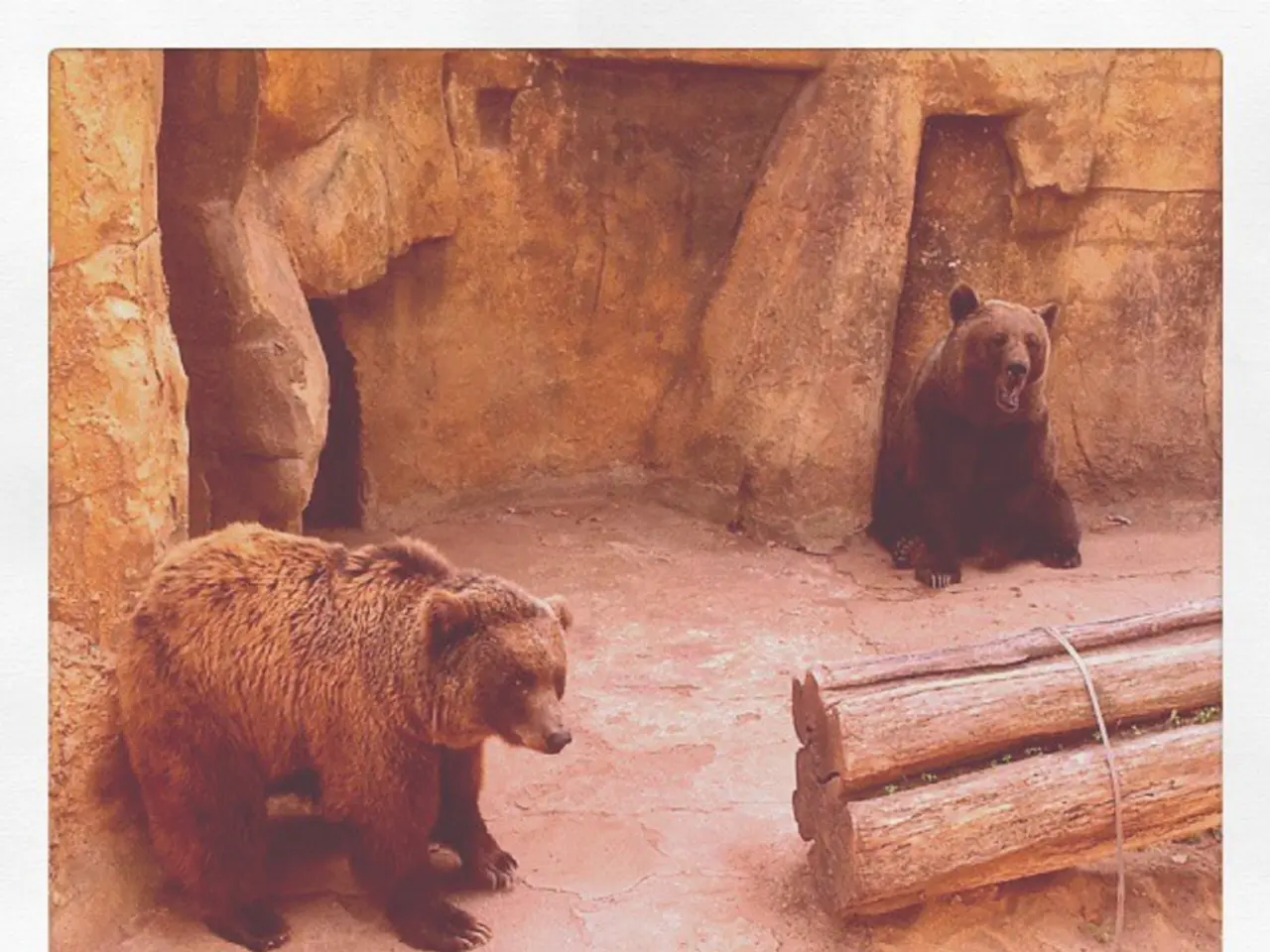Reclaiming Our Past: A Look at Indigenous Peoples' Day in the U.S.
Trump Pushes for Preservation of Columbus Day, Unclear on opponents or potential changes
So, the big news again has Columbus Day in the spotlight - but what exactly is Donald Trump promising to bring back from the ashes? The politician seems to be referring to the ongoing political debate surrounding whose history deserves recognition.
Since its move to October's second Monday, Columbus Day is already making headlines once more. President Trump, on April 27, expressed plans to revive the previously controversial holiday, criticizing Democrats for allegedly trying to destroy Christopher Columbus, the Italian explorer responsible for landing on American shores in 1492. The twist? Columbus Day never actually went anywhere.
In 2021, Joe Biden, Democratic president, issued an Indigenous Peoples Day proclamation instead, honoring Native Americans for their invaluable contributions and resilience. Interestingly enough, this recognition did not abolish Columbus Day as a federal holiday. In fact, as of today, 18 states and numerous municipalities share the spotlight between Indigenous Peoples Day and Columbus Day, with the latter far from disappearing from the calendar.
The first state to exchange Columbus Day for a “Native American Day” was South Dakota, with a warm welcome from its Republican governor George Mickelson back in 1990. The shift was part of a larger effort to bridge the divide between Native and non-Native communities, acknowledging the longstanding history of injustice and mistreatment faced by the state’s Indigenous peoples.
Fast forward to 2025, Republican Governor Greg Gianforte of Montana signed Senate Bill 224, officially recognizing Indigenous Peoples Day in Montana, home to no less than 12 tribes. The annual commemoration will now share October's second Monday with Columbus Day. But make no mistake; the push for Indigenous Peoples Day has been ongoing since its formal inception in 1990 and is rooted in the desire to promote both awareness and reconciliation.
Indigenous communities and their allies have long lobbied for government recognition of Indigenous Peoples Day, with a goal of showcasing the beauty, diversity, and resilience of Indigenous cultures, as well as raising awareness of the nation's violent colonial past and ongoing challenges faced by Native communities. Among the issues at hand is the epidemic of missing and murdered Indigenous women, poverty rates due to broken treaties, stolen lands, resources, and the forced relocation of Indigenous peoples to remote areas.
While some advocate for completely abolishing Columbus Day, it has is met with fierce debate. To put it bluntly, Columbus was no Admiral Horatio Nelson or Captain James Cook. Columbus never "discovered" the Americas; millions of Indigenous people, each with distinct languages, cultures, and civilizations, had already been living here for thousands of years. What's more, Columbus is accused of acts of violence, mass atrocities against Indigenous peoples, and trafficking Native women and children.
As a result, many question Columbus' deserving of a holiday in his name. Diseases from European colonizers, for which IndigenousPeople had no immunity, led to devastating losses, with estimates claiming that these epidemics resulted in the wiping out of over 90% of the indigenous population in the Americas. To add fuel to the fire, Columbus had a reputation as a sex trafficker, coercing Native girls as young as 8 to perform sex acts for himself and his crew.
On the brighter side, Native American Heritage Month, observed every November in the United States, was established by Republican President George W. Bush in 2002. This recognition served as an opportunity to educate Americans about Native American lives, contributions, and heritage. President Bush also took the opportunity to highlight the hardships Indigenous communities have faced and the need for reconciliation.
Don't fall for the rhetoric: We don't have to be divided. We can rise above the past and become the people our ancestors and future generations would be proud of. Y'all better work!
Join our Tribal Council 🏛️
Want more political discourse while sipping on cleverly-crafted content? Become a member to support our work, snag a complimentary subscription to our magazine, and other perks!
Click here to join the action 👊
And don't forget to check out our current issue 🔍
Didn't get enough detail? 🤓
- Some History 📚The movement to recognize Indigenous Peoples Day began in the 1990s as a response to the historical oversights of Columbus Day. Originally celebrated to honor Christopher Columbus' arrival in the Americas, many Indigenous communities saw Columbus Day as a celebration of European colonialism and the displacement of Native Americans. Faced with this narrative, the movement to create Indigenous Peoples Day grew as a means to acknowledge the complex history between European settlers and Native Americans, as well as to promote cultural awareness, reconciliation, and the importance of Indigenous heritage[1][2][4].
- State Politics and Policies 🗣️A number of states have named October's second Monday "Indigenous Peoples Day" or observe it along with Columbus Day. The following are some of the states that have made this move: Alabama, Alaska, California, Hawaii, Idaho, Iowa, Louisiana, Maine, Michigan, Minnesota, New Mexico, North Carolina, Oklahoma, Oregon, South Carolina, South Dakota, Texas, Utah, Vermont, Virginia, Washington, West Virginia, and Wisconsin. Each state has taken different approaches, with some continuing to recognize Columbus Day, some replacing it, and others using the day to celebrate both European and Indigenous heritage[1][2][3].
- Columbus' Controversial Legacy
The ongoing dispute regarding Indigenous Peoples Day and Columbus Day reflects a broader debate on policy and legislation concerning war-and-conflicts, politics, general news, and crime-and-justice. This dispute highlights a desire for cultural recognition and a focus on the beauty, diversity, and resilience of indigenous cultures within the art and community.
Despite arguments for completely abolishing Columbus Day, some argue that President Bush's establishment of Native American Heritage Month in 2002 serves as an opportunity to promote awareness and education about Indigenous peoples and their heritage.
As the movement for Indigenous Peoples Day continues, it is rooted in the goal of showcasing the nation's violent colonial past and ongoing challenges faced by Native communities. Issues such as the epidemic of missing and murdered Indigenous women, poverty rates, and the forced relocation of Indigenous peoples are still relevant concerns in today's society.
In 2025, Indigenous Peoples Day was officially recognized in Montana, but the push for recognition goes back to the 1990s as a response to the historical oversights of Columbus Day. The movement aims to acknowledge the complex history between European settlers and Native Americans and promote cultural awareness, reconciliation, and the importance of Indigenous heritage.








